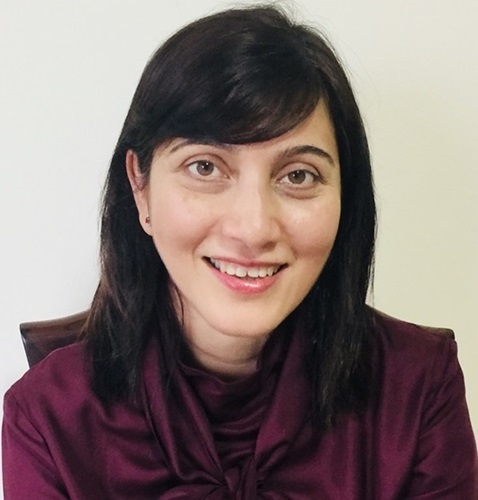
Asia is emerging as a hub for biopharmaceuticals and vaccine manufacturing, leveraging its strengths in manufacturing and research to produce affordable and high-quality therapeutics to address pressing public health concerns. The region is poised to play a vital role in global healthcare, ensuring equitable access to life-saving treatments. Accordingly, the global biopharmaceutical market is growing rapidly, with a projected $2.4 trillion value by 2025, especially in emerging markets like Asia. With advanced technologies like mRNA, gene editing, and artificial intelligence, biopharmaceuticals can develop vaccines and therapies to address public health issues affecting the region. With the onset of the pandemic, these approaches have become more important for preventing COVID-19, flu, and HIV, as well as treating cancer, diabetes, and cardiovascular disease. Beyond their role in preventing diseases, reducing healthcare costs, and improving patient outcomes, biopharmaceuticals also serve as a means of protecting and promoting public health.
Moderna is one such Biotech company that uses cutting-edge technologies to develop innovative vaccines, therapies, and treatments to address pressing global health challenges. Spikevax, the company's COVID-19 vaccine, has been administered to over 1 billion individuals worldwide during the pandemic. Moderna continues to advance its mRNA technology by developing vaccines and therapies contributing to a resilient healthcare ecosystem. Looking ahead to 2025, Moderna is poised to further expand its pipeline while leveraging its mRNA platform to develop innovative treatments for cancer, cardiovascular disease, and rare genetic disorders. Piyali Mukherjee, VP, Medical Affairs, Asia, discusses Moderna's approach to innovation and public health to build a resilient healthcare ecosystem to address complex healthcare challenges.
At Moderna, we are committed to addressing public health needs in Asia-Pacific by leveraging mRNA technology to combat preventable diseases. Our respiratory vaccine portfolio, including those for COVID-19, influenza, and RSV, is progressing toward approvals, with a strong focus on ensuring equitable access across the region. Additionally, we are advancing mRNA applications for endemic diseases like dengue, which disproportionately affect Asia.
Collaboration is central to our approach. We work closely with governments, healthcare organizations, and local partners to tackle region-specific challenges, such as vaccine accessibility and emerging health threats.
Beyond vaccines, our pipeline targets transformative therapies in oncology, rare diseases, and latent viruses, positioning us to address Asia-Pacific's evolving healthcare needs holistically and improve outcomes for the communities that need it most.
Moderna’s vision is to harness the power of mRNA technology to transform lives by addressing urgent and unmet healthcare challenges. Over the past few years, this has driven our rapid response to the COVID-19 pandemic, including successful vaccine rollouts in Asia, such as Japan, South Korea, and Taiwan.
This vision continues to guide our focus on areas critical to the region, such as vaccines for aging populations and therapeutics for rare diseases and cancers. By partnering with governments and healthcare organizations across Asia, we’re leveraging the adaptability of our mRNA platform to address evolving healthcare needs and make a lasting impact on global and regional health.
A core pillar of our innovation strategy aims to fill gaps to strengthen healthcare resilience across the region. Preventive healthcare, such as vaccines, plays a pivotal role in enhancing public health resilience in Asia-Pacific, including Singapore. Vaccines can reduce the burden on healthcare systems by preventing severe illnesses and protecting vulnerable populations.
Additionally, our investments in education and capacity-building initiatives enhance healthcare professionals' knowledge and readiness to integrate cutting-edge vaccines and therapeutics.
Vaccines are fundamental to public health resilience and vital tools to protect lives and communities. Vaccines, like the updated COVID-19 vaccine, which has been designed to better match new and emerging variants of the disease, help prevent severe illness, which in turn helps to reduce the burden on the region’s healthcare systems.
Advancing vaccination coverage — from seasonal influenza to potential vaccines for diseases like RSV — is key to enhancing health resilience and achieving long-term sustainability for public health systems in the region.
Moderna is advancing its mRNA pipeline to address evolving healthcare needs in Asia-Pacific. Our focus on respiratory vaccines—including COVID-19, influenza, and RSV—has demonstrated strong progress, with positive Phase 3 results. Importantly, Asian populations were included in these studies, ensuring regional representation. Following approvals of our RSV vaccine in the U.S., Europe, Canada and Qatar, we are actively working with regulators in Asia to bring this innovative solution to the region. Additionally, mRNA-1083 is designed to enhance vaccine uptake and convenience by combining two critical vaccines.
Beyond respiratory diseases, Moderna is advancing its pipeline into oncology, rare diseases, and latent viruses. In oncology, our collaboration with Merck/MSD on individualized neoantigen therapies targets cancers like melanoma and lung cancer. For rare diseases, we are developing treatments for methylmalonic acidemia (MMA) and propionic acidemia (PA). Our latent virus vaccines, including those for cytomegalovirus (CMV) and norovirus, represent another critical area of focus.
These innovations reflect our commitment to addressing Asia-Pacific’s unique healthcare challenges while delivering cutting-edge solutions tailored to the region's needs.
In 2025, Moderna aims to achieve significant milestones, including continuing its goal of launching ten products in three years for respiratory and non-respiratory diseases.
However, our vision for 2025 goes beyond individual products. We continue to reshape healthcare systems by integrating mRNA solutions into the broader public health infrastructure, fostering resilience and improving health outcomes at a regional and global level.




